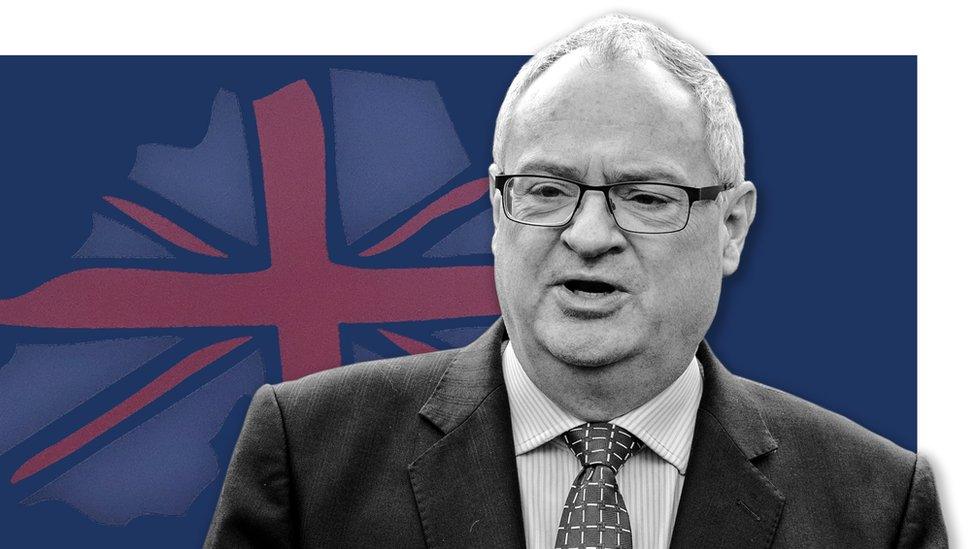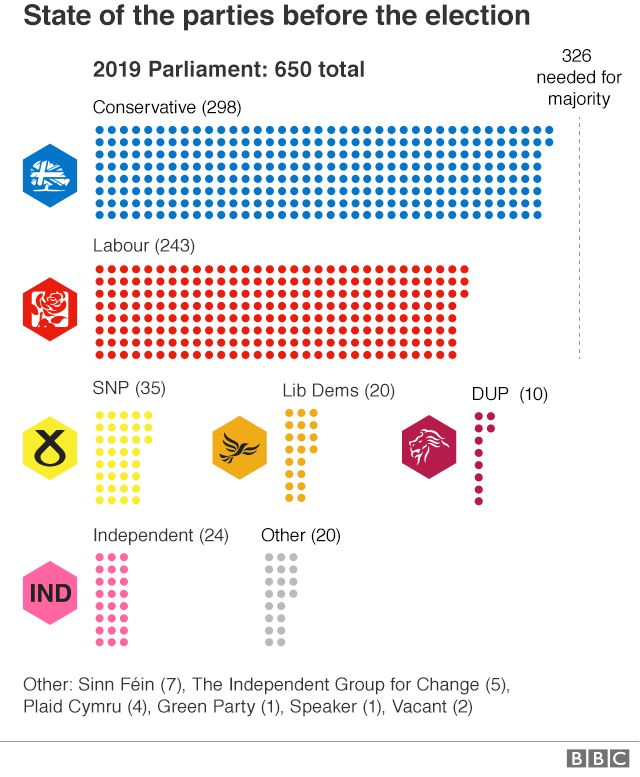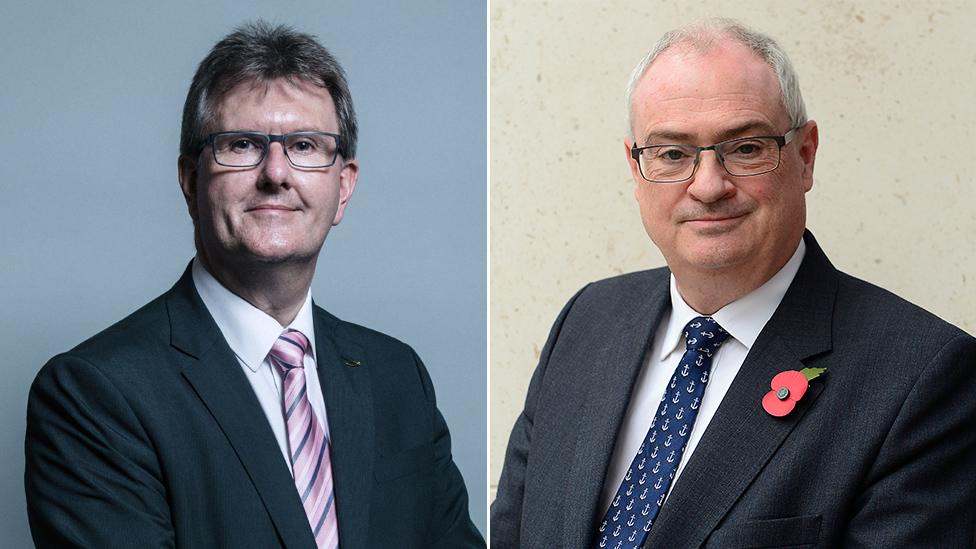General election 2019: A simple guide to the Ulster Unionist Party
- Published

For many years the Ulster Unionist Party held the clear majority of Westminster seats in Northern Ireland, but it has struggled to hold its own against the Democratic Unionist Party since the early 2000s.
A unionist pact allowed it to reclaim two seats in 2015 but it lost them again just two years later.
The party also has 10 representatives in the Northern Ireland Assembly, and lost its MEP in the European poll in May.
Who is the leader?
The new leader is Steve Aiken, who only took over on 9 November.
He is standing in the general election, but he also represents the South Antrim constituency in the Northern Ireland Assembly.
Mr Aiken has faced pressure during the course of the election campaign, for saying his party would not agree a unionist pact with the DUP this time.
Unionist parties have traditionally agreed electoral pacts in certain constituencies in order to maximise the number of unionist MPs at Westminster.
They feel if the unionist vote is split between them it makes it more likely a nationalist candidate will take the seat.
Mr Aiken was forced to do a U-turn on his initial decision, and the party has already agreed to stand aside in North Belfast to boost DUP deputy leader Nigel Dodds's chances of retaining the seat.
Five key election pledges
The party's manifesto contains a number of pledges, external, including:
Maintain the union, which will take precedence over securing Brexit at any cost
Call for direct rule to be implemented in January, if Stormont has not been restored by then
Greater transparency around ministers and special advisers if it is alleged they have broken the code of conduct
Independent monitoring of delivery of the Programme for Government
Lower the voting age to 16 by 2021


Where does it stand on Brexit?
Its official stance during the EU referendum in 2016 was to back Remain but a number of high-profile members, including then Fermanagh and South Tyrone MP Tom Elliott, supported Leave.
Since then, the party has said it respects the result of the vote and wants to see Brexit delivered - but it does not support the current withdrawal agreement.
Party leader Steve Aiken said he would rather support the UK remaining in the EU than sign up to Boris Johnson's deal.
What else does it stand for?
The party sits on the soft-right of the political spectrum - it even formed an official pact with the Conservative Party during the 2010 general election.
It broadly backs right-of-centre domestic policies and allows its members a conscience vote on social issues such as same-sex marriage and abortion.
Ulster Unionist policy in a tweet
Allow X content?
This article contains content provided by X. We ask for your permission before anything is loaded, as they may be using cookies and other technologies. You may want to read X’s cookie policy, external and privacy policy, external before accepting. To view this content choose ‘accept and continue’.

What is the Ulster Unionist Party's history?
The party traces its formal existence back to the foundation of the Ulster Unionist Council in 1905.
Before that, however, there had been a less formally organised Irish Unionist Alliance since the late 19th Century.
The Ulster Unionist Party was the dominant force in Northern Ireland politics for decades, but in recent years it has faced a difficult decline.
What about the other parties?
- Published25 October 2019

- Published30 October 2019
